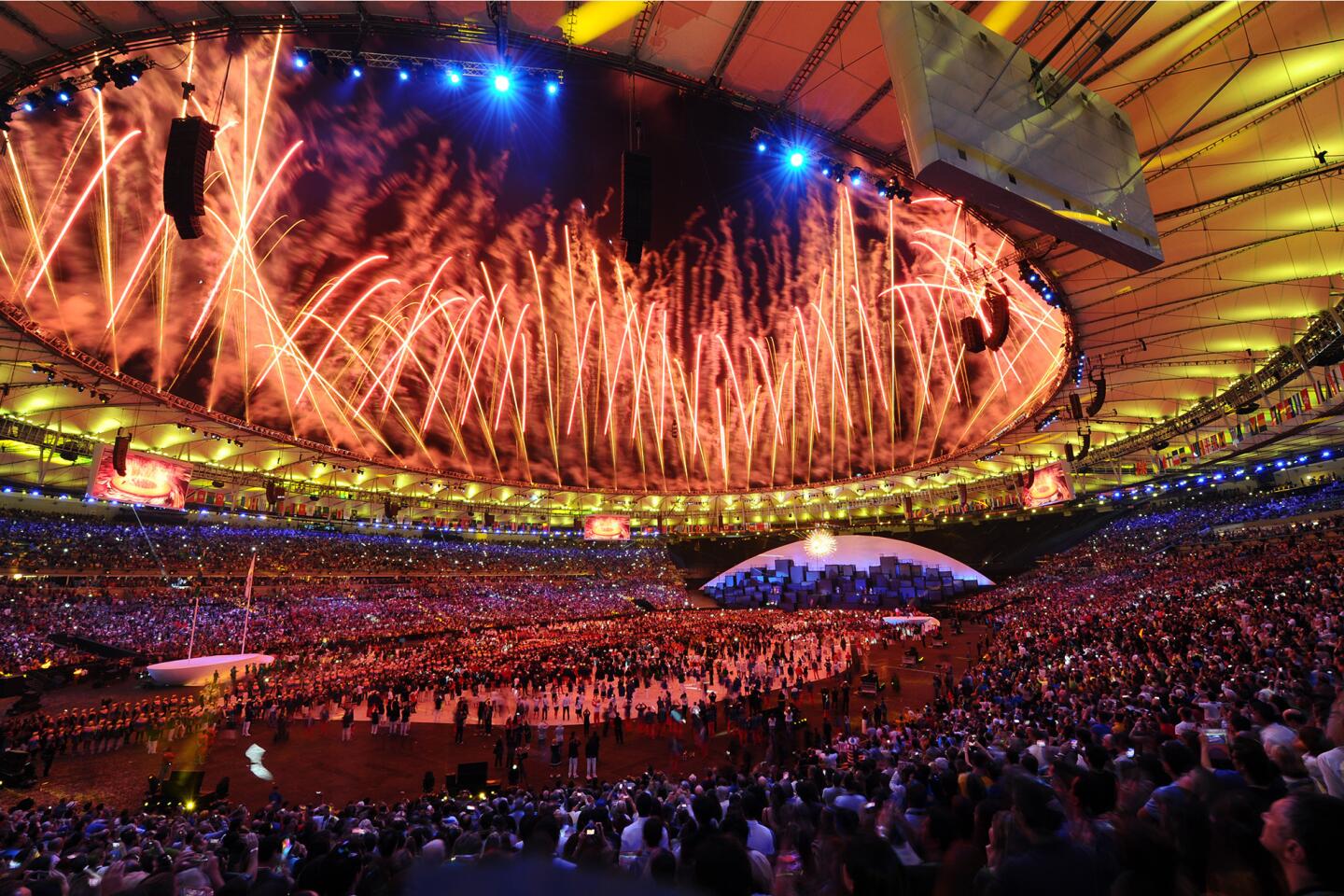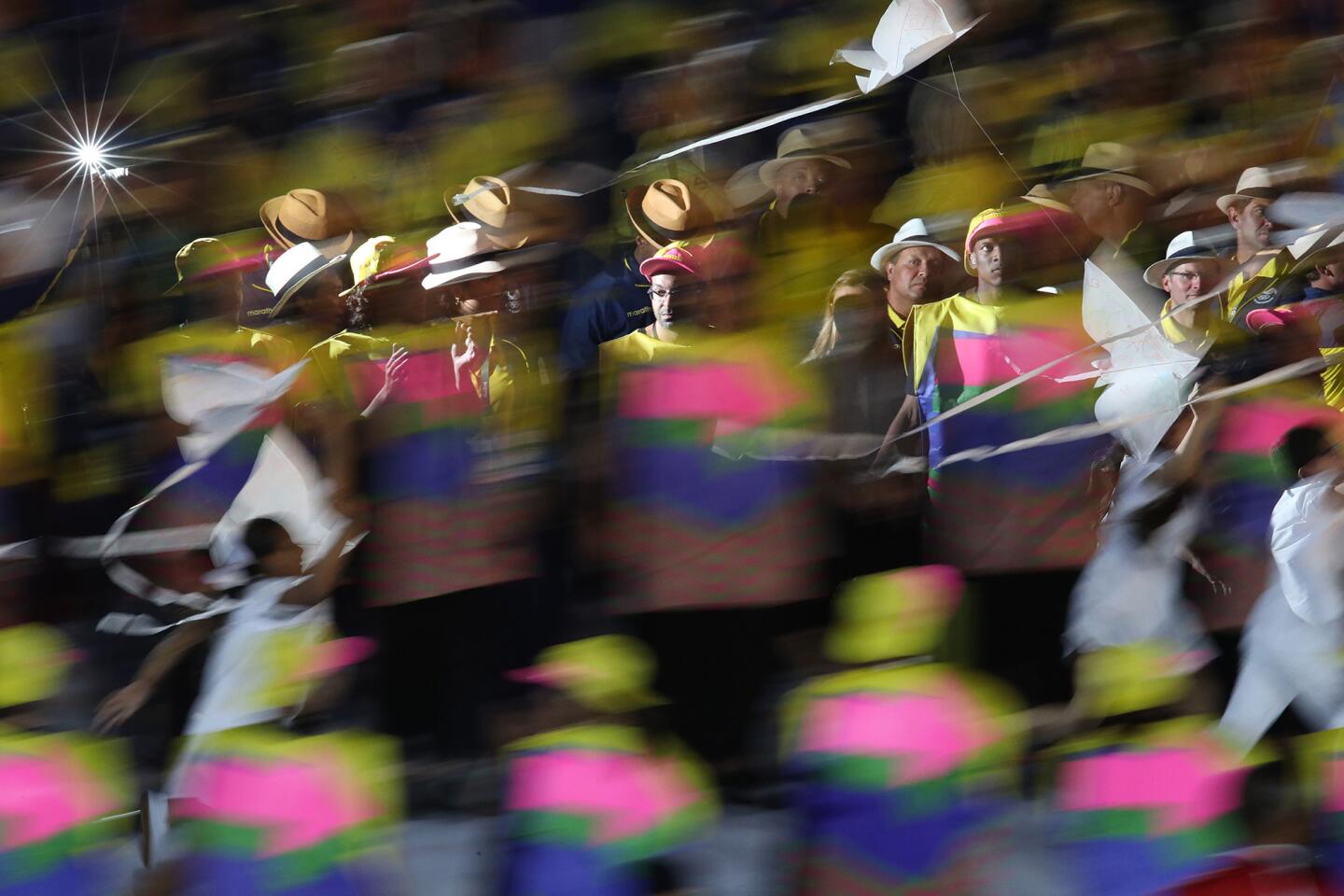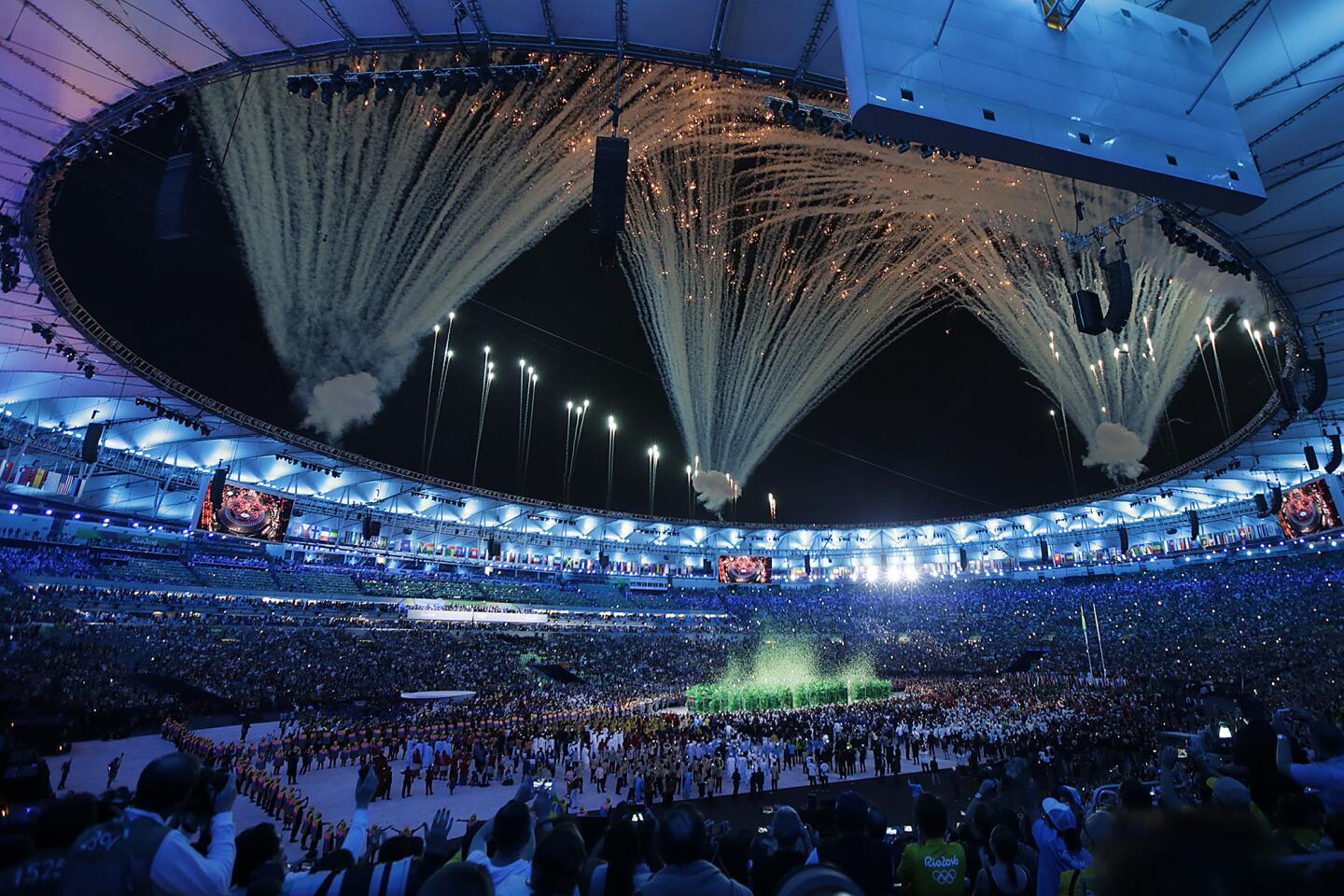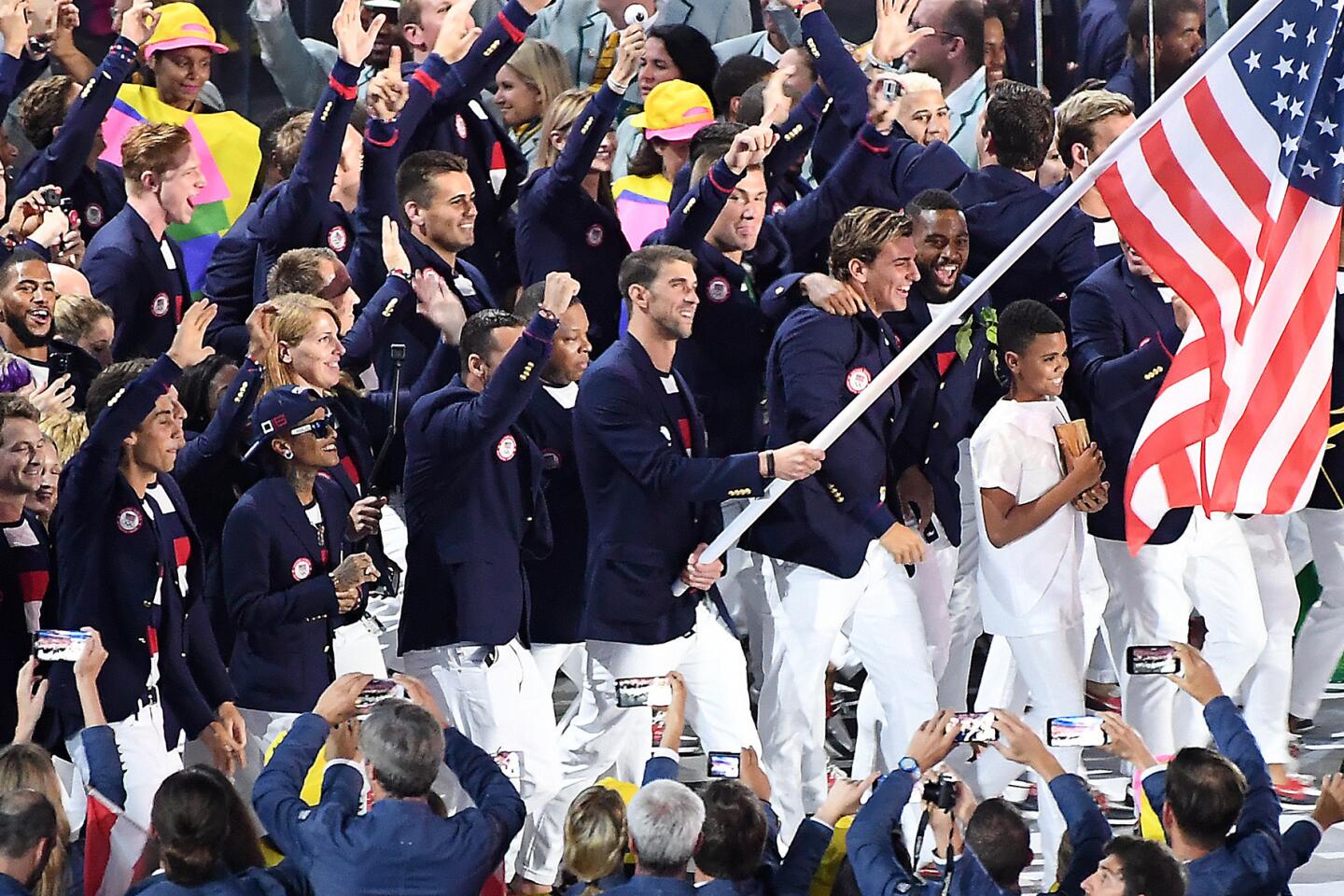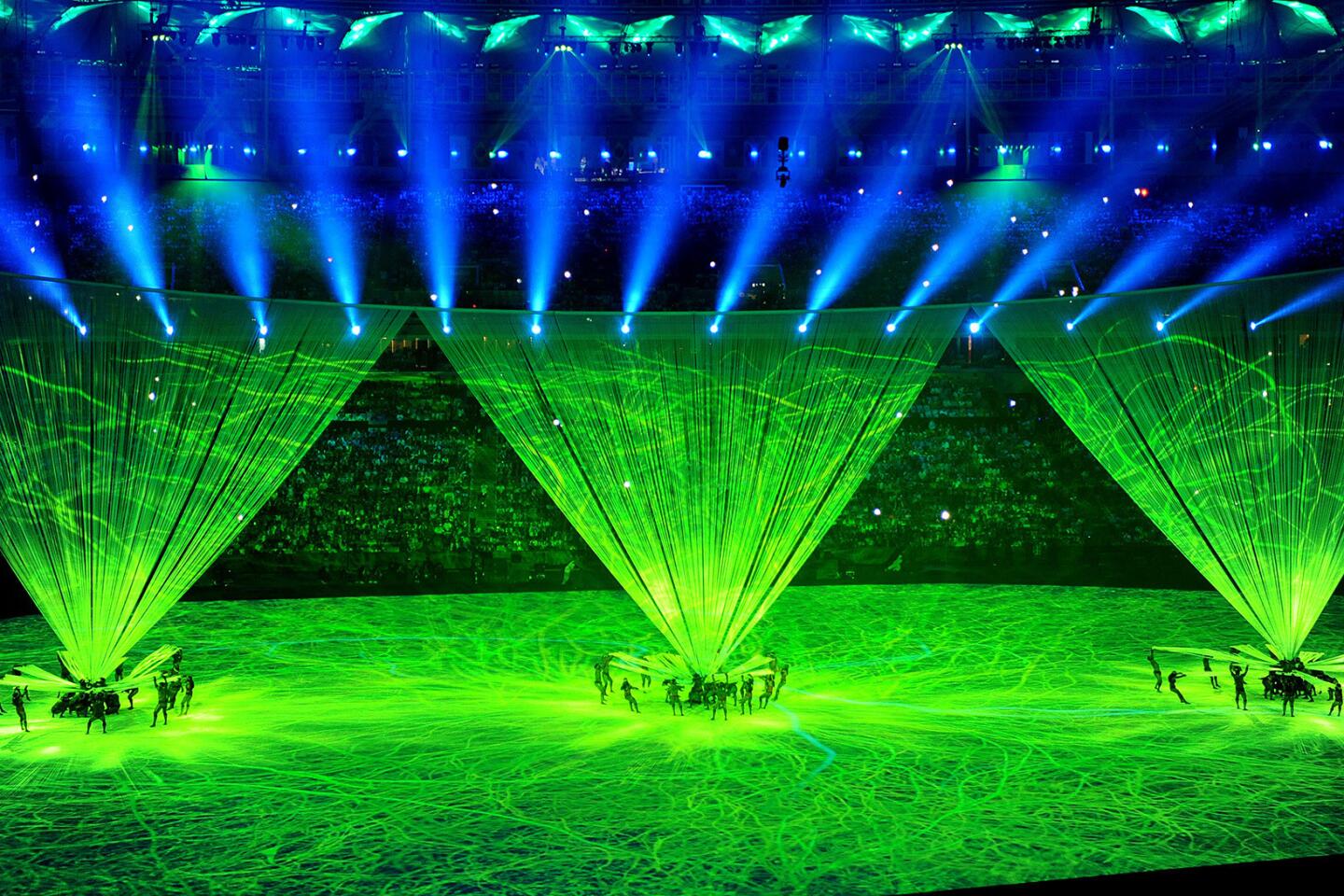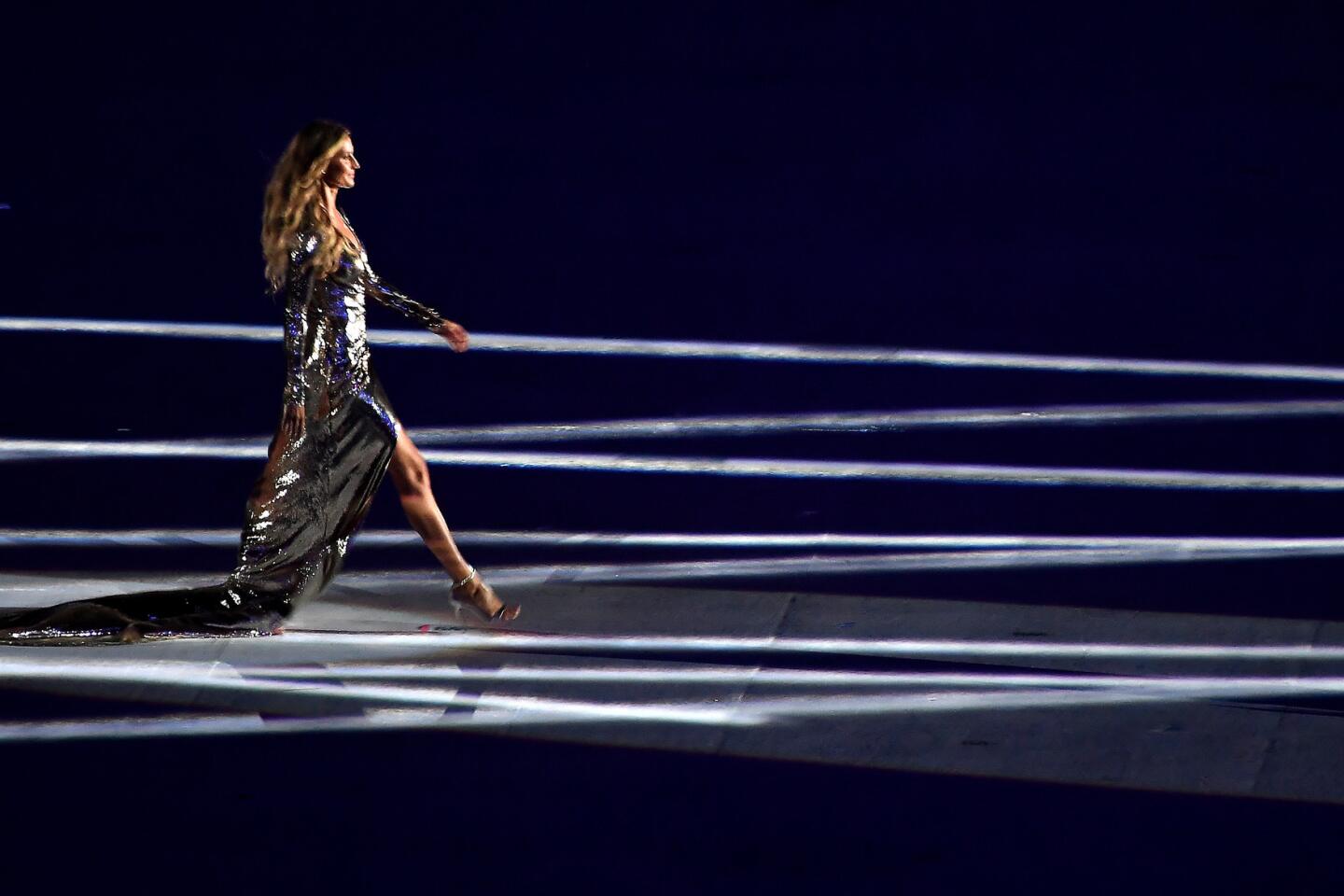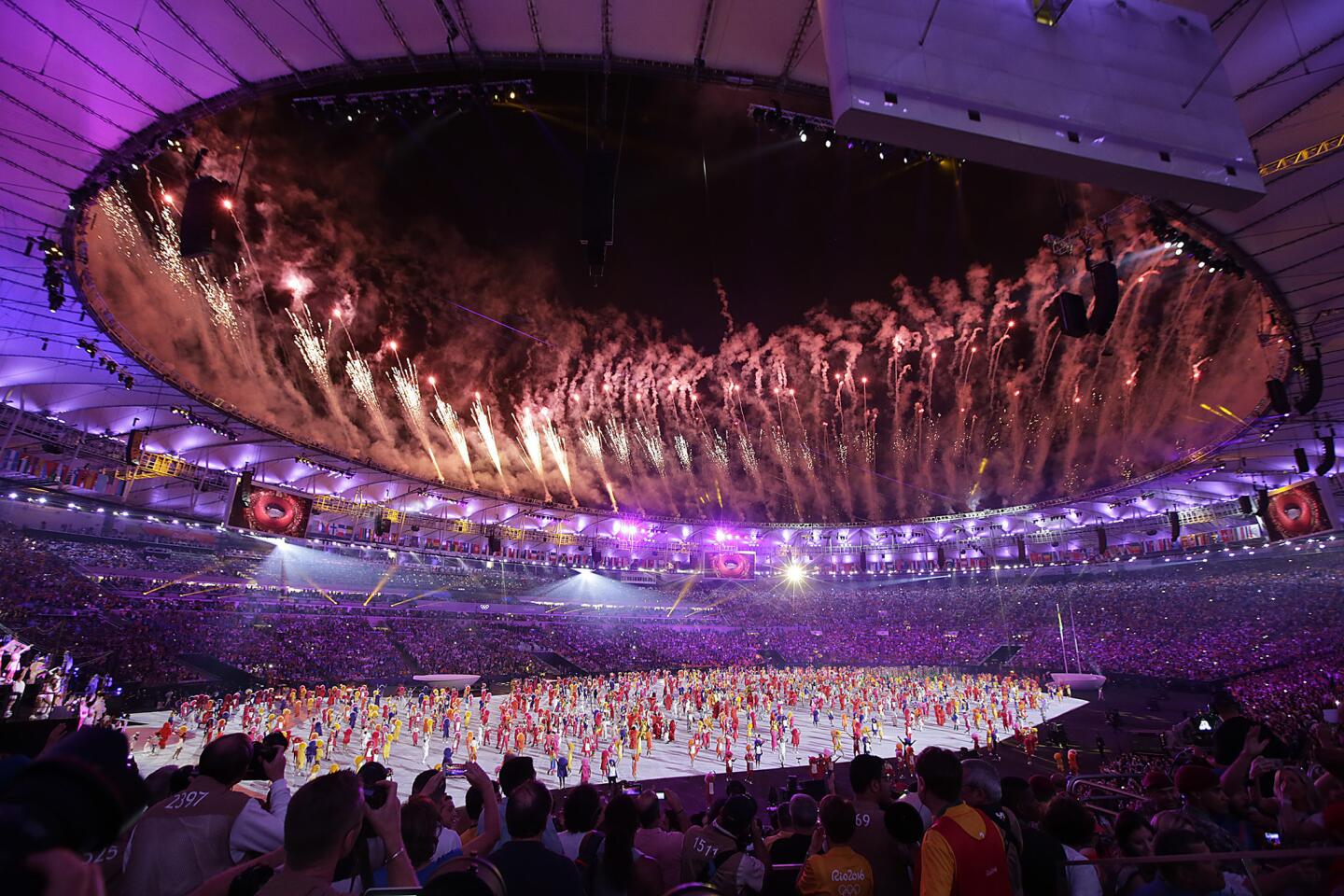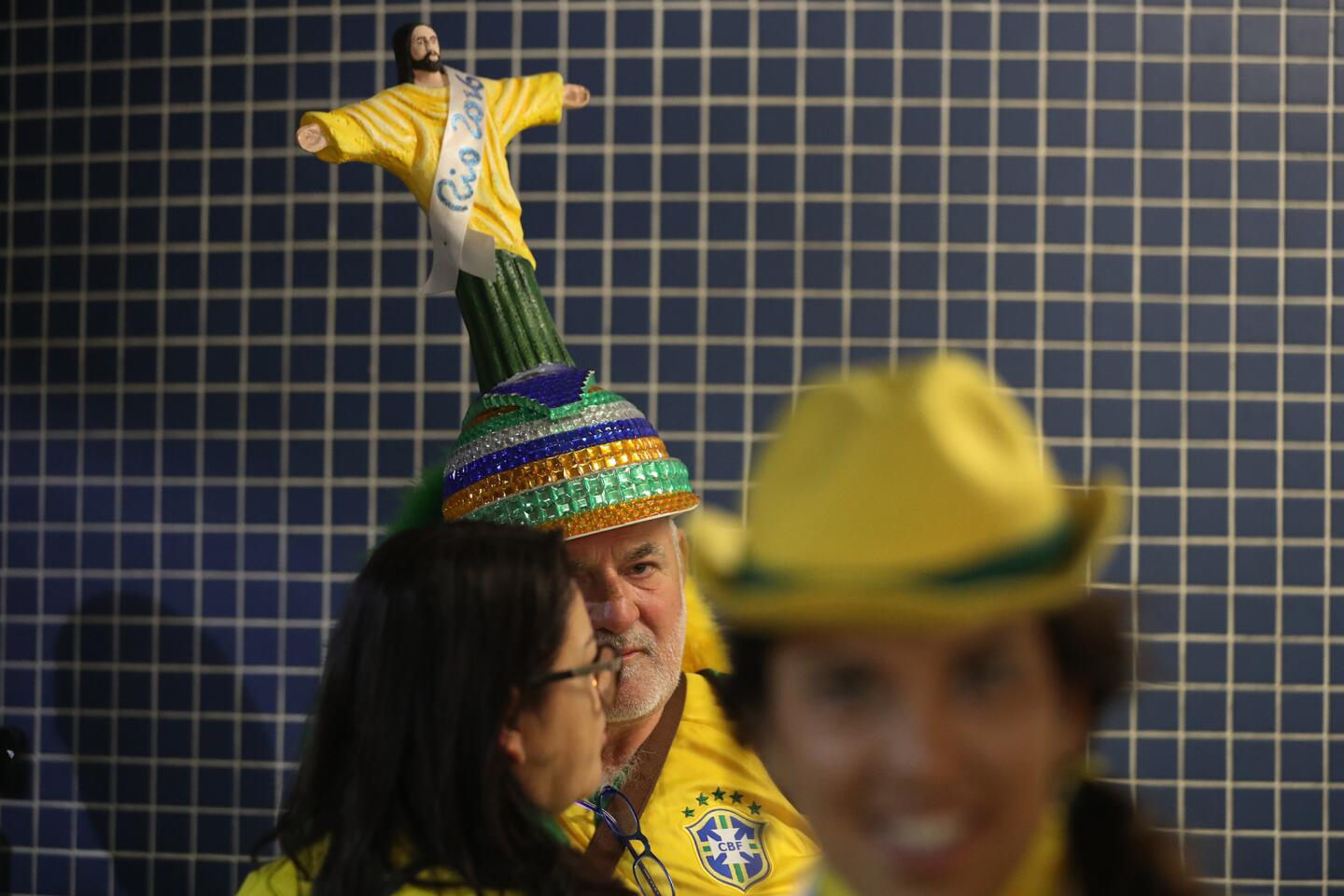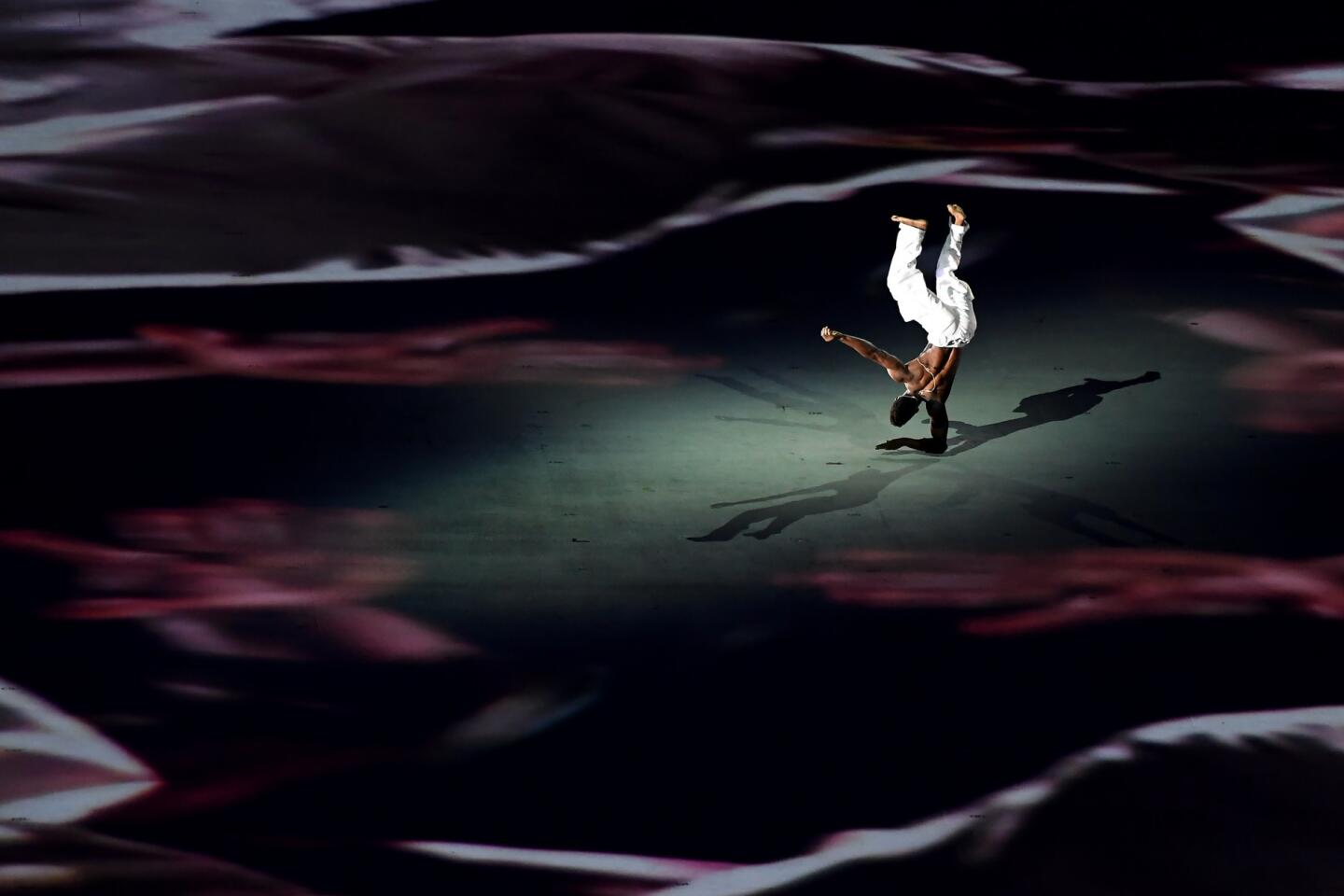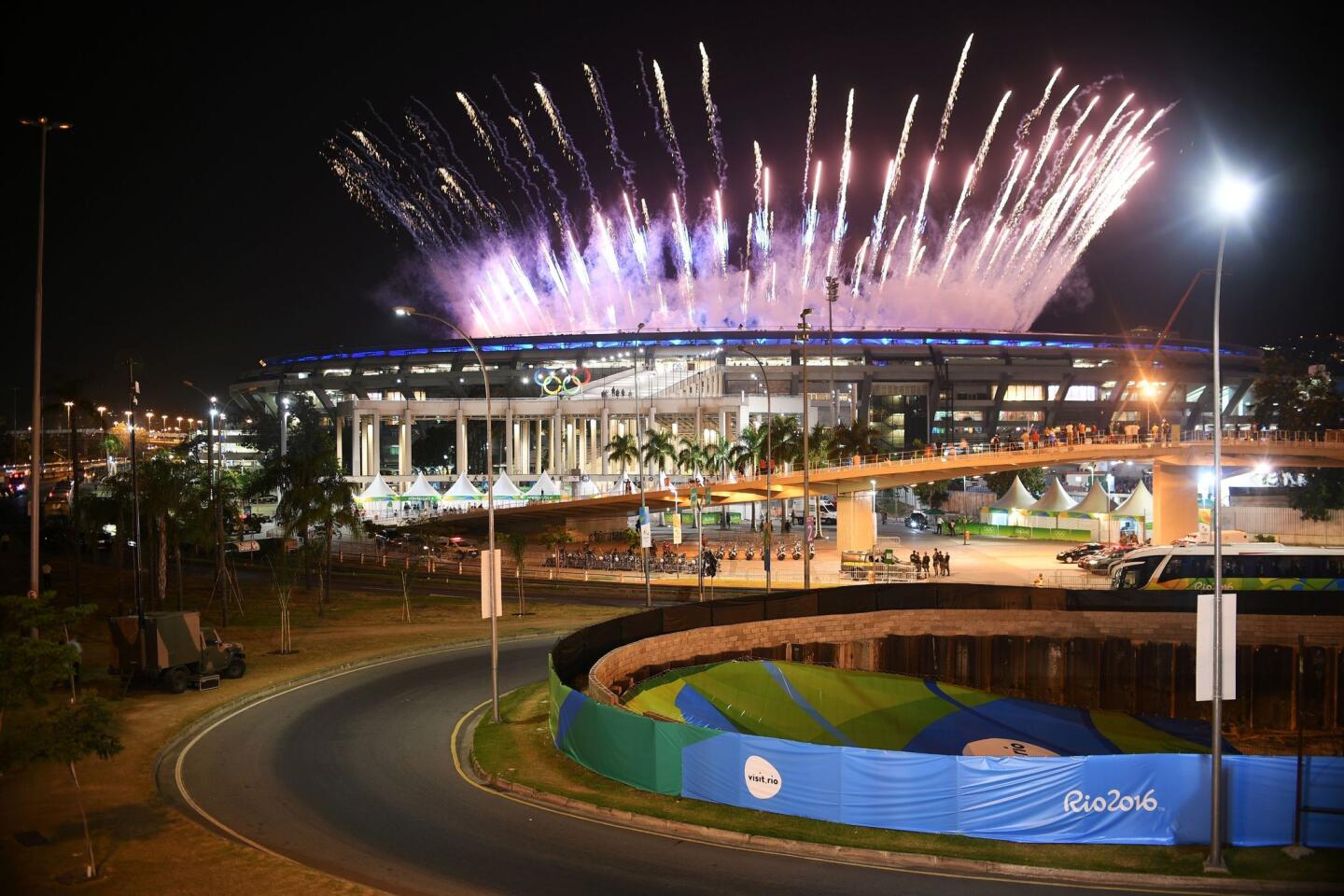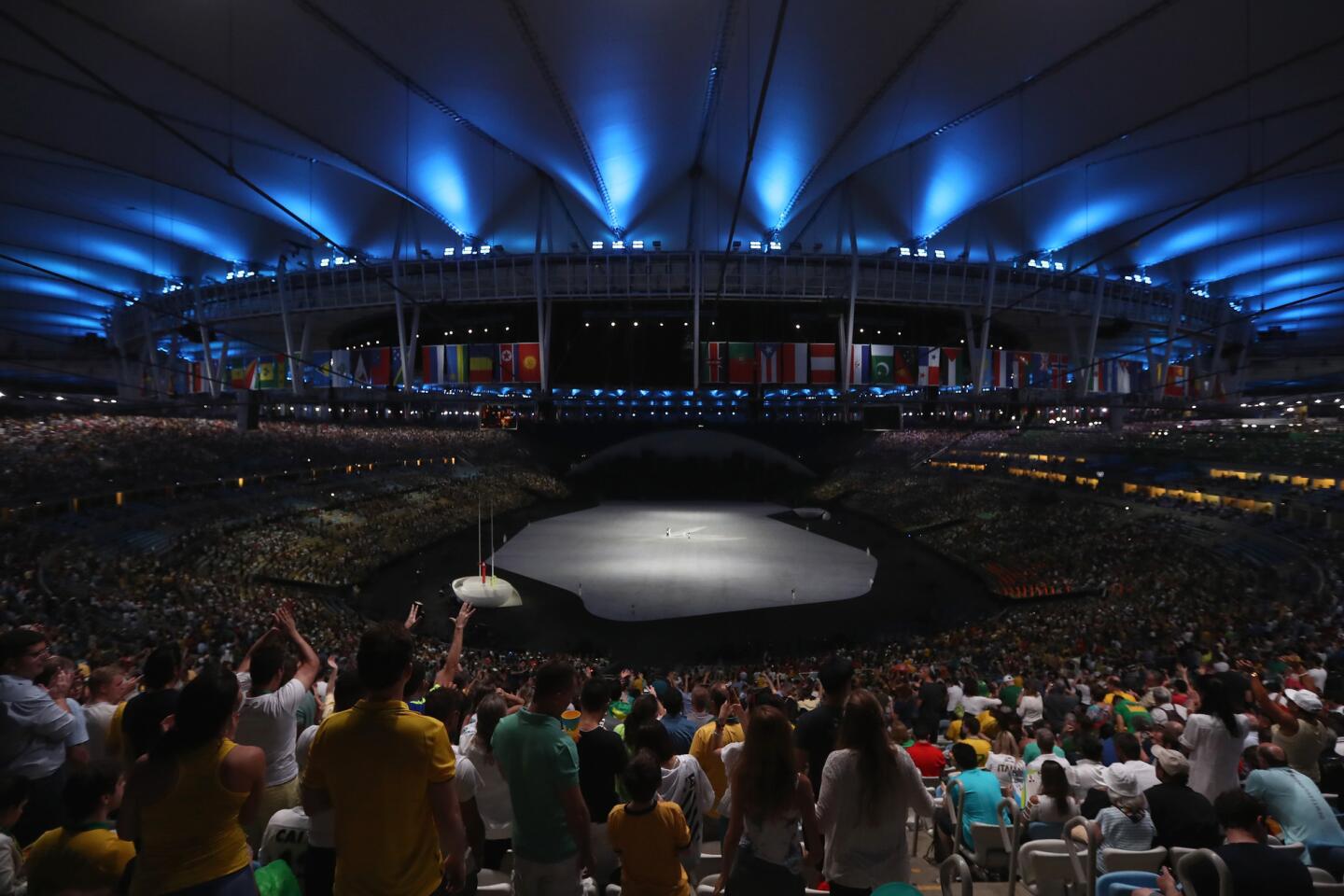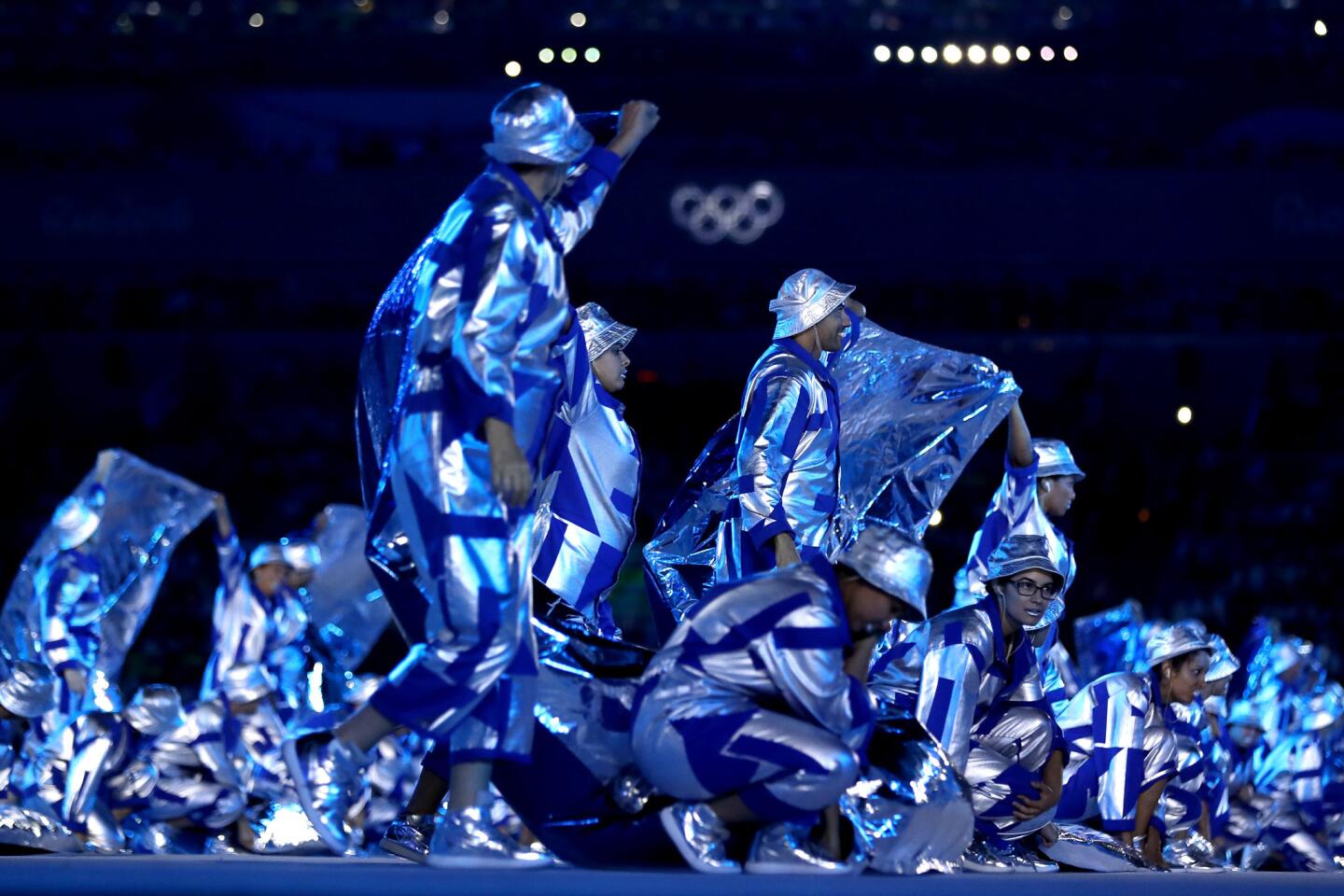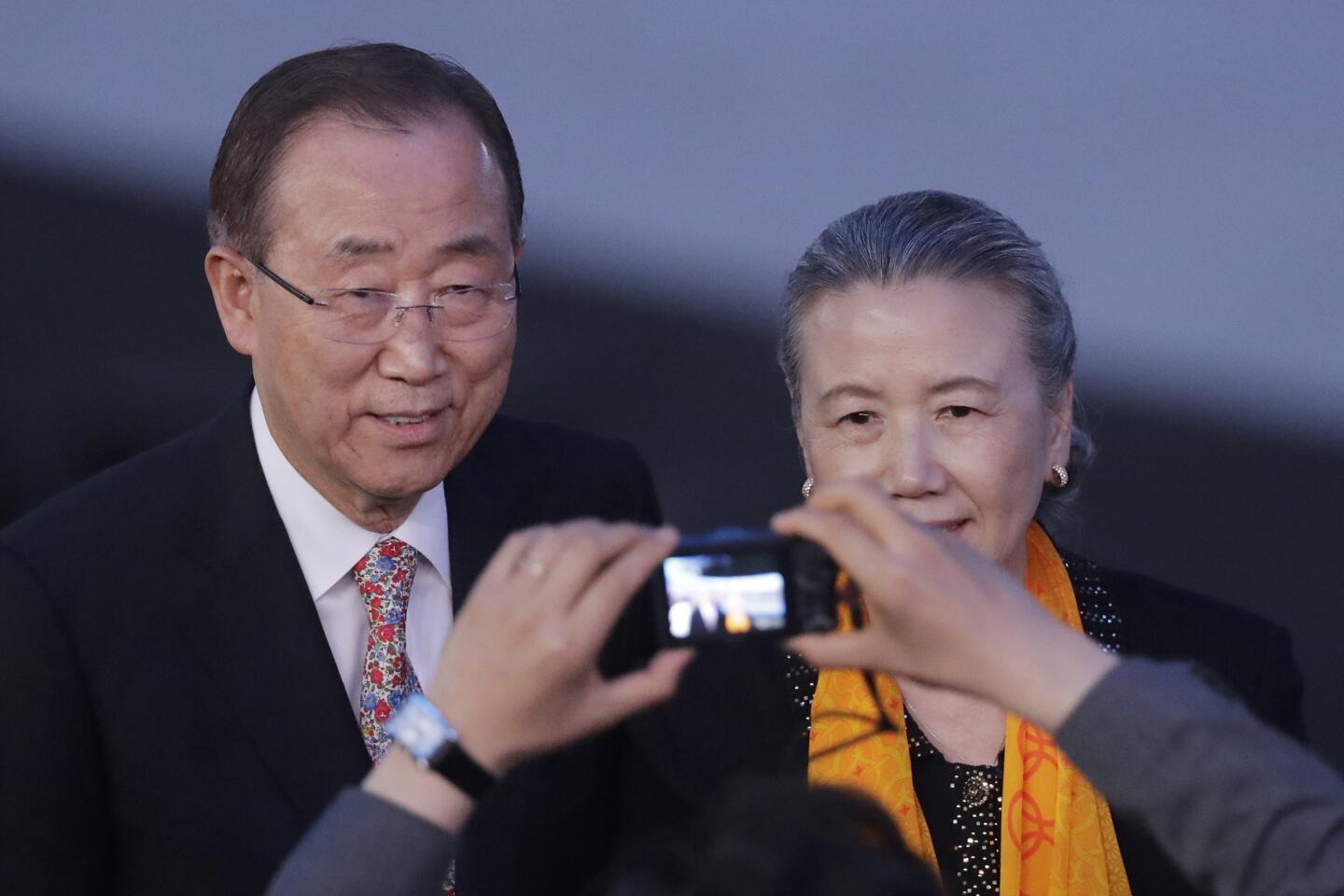Commentary: Why the Rio Olympics opening ceremony matters
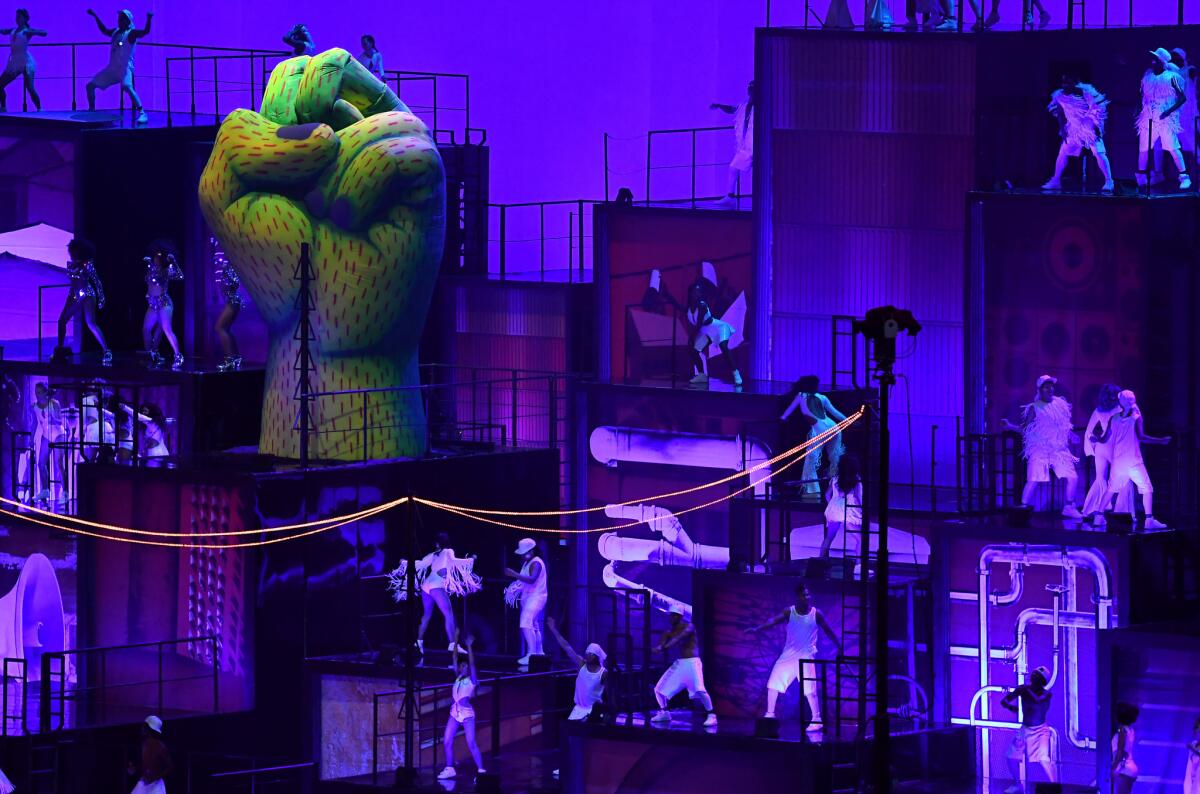
The threat of calamity hung in the air, but only a fool would doubt Brazilians’ ability to throw a lively party.
The Rio 2016 Olympics have been dogged by turmoil, scandal, ineptitude and protest, with a Zika epidemic and a foiled terrorist plot adding menace to the mix. But Friday’s opening ceremony provided an opportunity to reframe a sporting event that was in danger of becoming the embodiment of the world’s brooding mood.
There wasn’t the graceful historical pageantry of Athens, the commanding special effects of Beijing, or the theatrical prowess of London. But Rio de Janeiro’s sambaing shindig uniquely combined gravitas with gravity-defying bounce.
The country’s preeminent resource — the spirit of its people — was the show’s most dazzling attraction. Scantily clad bodies vibrated in the colorful frenzy of Carnival as the country’s history was traced, from indigenous roots through colonization to the environmental challenge of today.
These first South American Games didn’t elide the historical stain of slavery. Nor were the favelas, Rio’s crowed and crime-ridden slums, left out of the equation, though the focus was on the cultural contributions, rather than the burning resentments, that have flowed from these impoverished communities.

Never has an opening ceremony been so green. Nature was front and center, reminding us that not only does Brazil house a vast stretch of the world’s largest rain forest — a living lab for biodiversity and an indispensable part of the Earth’s cooling system — but the planet’s ecosystem is under grave threat by human-induced climate change.
What happens in the Amazon doesn’t stay in the Amazon. The same goes for America’s highways and China’s industrial towns. Melting icecaps, rising sea levels and the destruction of coastal cities — all of this was narrated to a global audience in a tone that was somber, sober and unifying.
The ceremony somehow managed to turn serious without losing the jubilance of the occasion. The atmosphere reflected the sensibility of creative director Fernando Meirelles, a filmmaker (“City of God”) who’s accustomed to blending vibrant spectacle with social conscience.
The contribution of choreographer and theater director Deborah Colker, a veteran of Cirque du Soleil, was apparent in the buoyant human geometry of the procession. The effects were technologically modest — there was nothing Spielbergian about the festivities — but they were resplendent all the same.
An extravagance of high spirits compensated for the budgetary austerity. It was a reminder that theater is fundamentally about human connection — artists and audience fused by imagination, desire and sympathy providing a simple yet profound bridge.
More sensual than spectacular, the ceremony strategically unleashed its secret weapon, Brazilian model Gisele Bündchen, who turned the stadium into her catwalk as she strode like a modern Aphrodite to the strains of “The Girl From Ipanema.”
Theater is fundamentally about human connection — artists and audience fused by imagination, desire and sympathy providing a simple yet profound bridge.
Judi Dench, whose voice could heal the world if only the world would unplug its ears, recited a poem as only she can. Carlos Drummond de Andrade’s “A Flor e a Náusea” was reverently read by the much-beloved Brazilian actress Fernanda Montenegro in Portuguese and Dench in English. The metaphor of a flower fooling the police by breaking through the asphalt, its delicateness out of place but a testament to the tenacity of softer values, resonated poignantly with these troubled Olympic Games.
The media have naturally focused on the chaos. The global spotlight has discovered Brazil’s political and economic crises — a potential benefit of these ruinously expensive Games for a society long suffering from corruption and a lack of transparency, even if few believe much will materially change after the Olympic torch is extinguished.
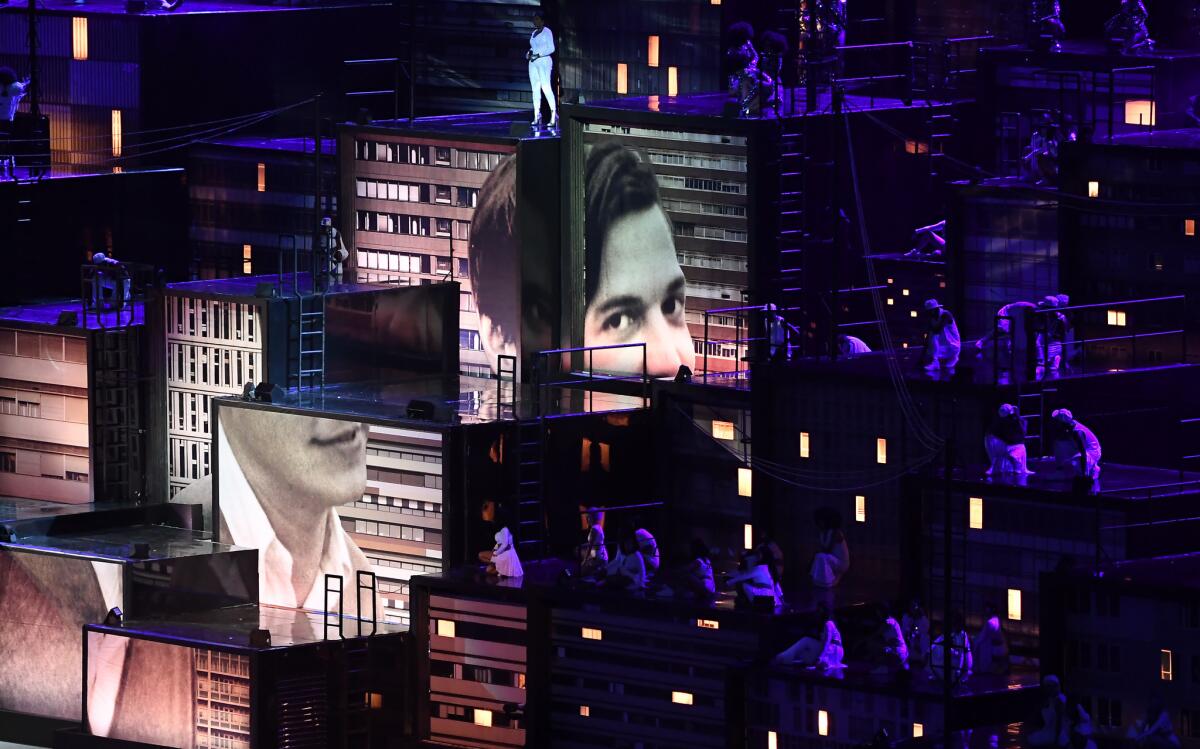
But there has also been quite a bit of First World impatience with a developing country’s struggles. The toxic bay and fetid ocean are grossing out visitors and understandably worrying the athletes, but will there be any international followup for the inhabitants of Rio?
The hand-wringing in the press over a litany of small complaints has been nonstop. The Olympic Village is in disrepair, the media center has had shortages of food and coffee and just the other day an Australian tennis superstar had to take a cold shower.
Brazil has come off as a refractory adolescent in need of the industrial discipline of the advanced West, a justification not so long ago for colonialism. Barely factoring in the coverage is the way multinational corporations have exacerbated the economic and environmental woes.
The opening ceremony succeeded in restoring a human face to a country that has been translated into a laundry list of unfixable problems. As populist as it was necessarily prettified, the event was in tune with the global mood that has grown weary of technocrats, elites and all the other self-serving saviors who talk a good game but never seem to improve the status quo.
The program might not have had enough Las Vegas glitz for some tastes, but there was plenty of hustle and flow and street cred.
Of course, watching the ceremony from the West Coast on NBC was to feel completely out of sync with the rest of the world. Determined to wring the maximum amount from its investment, the network refused to show the event live in an era when social media have made tape-delay unacceptable if unfortunately not yet obsolete.
In the longstanding tradition of NBC Sports, the over-packaged telecast was sliced and sentimentally diced and rammed with commercials that at times seemed to make up more of the substance of the broadcast than the ceremony itself. It was a foretaste of what’s in store for us in these next two weeks — heartening stories of jocks overcoming bum legs and bad childhoods, with only fleeting moments of real-time competition.
The bar for Rio 2016 is tragically low. Averting disaster is all that’s required for a passing grade. But these Games should get a gold medal if they diminish another global threat, the disapproving smugness that fails to acknowledge the stirring theme of this opening ceremony — that functional plumbing or no functional plumbing, we’re in this together.
ALSO
Barbra Streisand, still gunning for ‘Gypsy,’ samples some Stephen Sondheim at Staples Center
Still a singular sensation: ‘A Chorus Line’ at the Hollywood Bowl
‘Sense and Sensibility’ musical at the Old Globe: Happy endings for a world that could use more
More to Read
The biggest entertainment stories
Get our big stories about Hollywood, film, television, music, arts, culture and more right in your inbox as soon as they publish.
You may occasionally receive promotional content from the Los Angeles Times.
